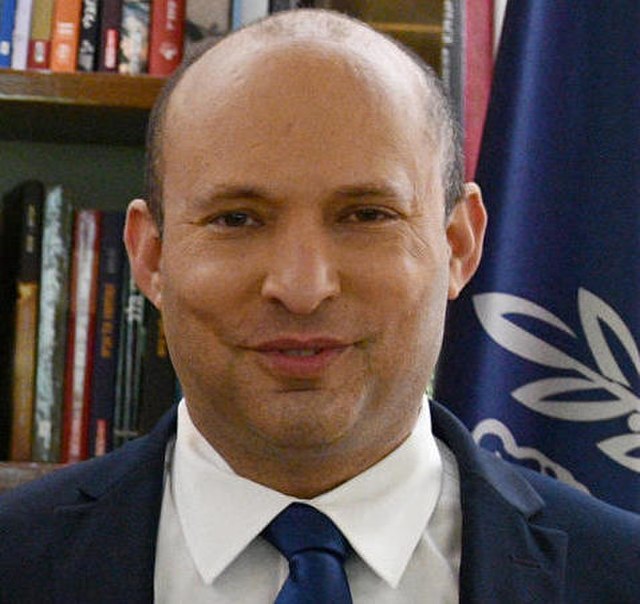A bill to dissolve the current Knesset and initiate new elections is expected to be brought to a vote next Wednesday. If it passes, national elections would take place on October 25 (the first Tuesday after 90 days that doesn’t fall on a Hebrew festival or on the day before a festival).
Following a year of Israel being governed by a collection of political factions representing the wealthiest and most westernized sectors of society, a Panels Research poll taken last Wednesday for Maariv shows that a majority of citizens do not want the current coalition under Prime Minister Naftali Bennett (Yamina) and Foreign Minister Yair Lapid (Yesh Atid) to continue.
According to the poll, 39% of respondents expressed a preference for new elections, 28% want the current government to continue, 19% prefer a new government formed from the current Knesset make up and 14% expressed no opinion.
Israel’s mainstream media has meanwhile been working to convince the Israeli public that saving the Bennett-Lapid coalition is a national imperative and that Israel’s democratic character would be endangered by the type of government that would likely replace it. This sentiment expresses a core flaw in the Israeli national conversation that frames “democracy” not as a system that empowers people to influence the structures they live under but rather as a set of “superior” (Western) values that must be enshrined and protected at all costs.
Israel’s ruling class understands this coalition to have been a rare opportunity for factions like Meretz, Labor and Blue & White to sit in a government with any meaningful power to advance the interests of their constantly shrinking constituencies. Media outlets that generally push a “save Israel from itself” editorial line have expectantly adopted the position that Bennett’s political experiment must be preserved. This also accounts for the aggressive legislative efforts of this government to promote Western values, undermine Israel’s Jewish character and disempower the fastest growing population between the river and the sea.
Speaking at The Jerusalem Post 10th Annual Conference last October, Bennett publicly called for limiting the political influence of Israel’s ḥaredi sector. The coalition was at the time locked in conflict with the ḥaredi political leadership, largely around aggressive reforms pushed by Minister of Religious Services Minister Matan Kahana (Yamina).
In spite of commitments made by Justice Minister Gideon S’ar (New Hope), the ministerial committee had also rejected an amendment to anti-racism legislation submitted by opposition MK Yaakov Asher (United Torah Judaism) that would have broadened the definition of racism to include discrimination and incitement against ḥaredi Jews.
The amendment would have closed a legal loophole that has effectively allowed for incitement against ḥaredi Jews due to the fact that they are not currently defined by either race, skin color or ethnic origin.
As was once again confirmed last November by a report released by Israel’s National Economic Council, the ḥaredi sector constitutes the fastest growing population between the Mediterranean Sea and Jordan River, projected to comprise roughly one third of the country’s Jewish population by the year 2050.
Working to limit this sector’s political influence on the state is therefore nothing less than an attack on actual democracy.
One of the most outlandish arguments made in defense of this government is that it has brought together mutually antagonistic sectors of Israeli society in a rare display of unity that placed the nation before the egos and political ideologies of various faction heads (contrasted with the media’s depiction of Likud leader Binyamin Netanyahu as a self-serving narcissist putting personal interests above that of the country).
But with the exception of Mansour Abbas’s United Arab List, virtually every party in this government shares a uniform view of both the world and Israel’s place in it.
In addition to representing the wealthiest sliver of Israel’s Jewish citizens, the factions comprising this coalition also all represent the tribal force of Yosef and therefore share a worldview that understands virtually all political and social issues through the liberal ideological paradigm. Despite their superficial differences and various positions on territory, they all essentially represent one broad tent camp that seeks to make Israel an outpost of Western civilization in the Semitic region.
On Thursday morning, Bennett reportedly begged Yamina faction chairman Nir Orbach to remain in the coalition – at least until after US President Joe Biden’s upcoming visit to the country next month.
Orbach is expected to cast the deciding vote to initiate new elections next week after attempts by Bennett to prevent him from bolting the coalition appear to have failed. According to a report by Walla, Orbach suggested to the prime minister on Sunday that the Knesset advance legislation to dissolve itself while Likud party lawmakers simultaneously renew efforts to form an alternative government in the current Knesset.
The Bennett-Lapid coalition has been deprived of its 61 seat majority since Yamina MK Idit Silman’s departure in April. Now Orbach, Ghaida Rinawie Zoabi (Meretz), Mazen Ghanaim (United Arab List) and Michael Biton (Blue & White) all appear to be abandoning it in an effort to better position themselves with their respective constituencies ahead of new elections.
The potential for forming a new government within the current Knesset exist if Religious Zionism party head Betzalel Smotrich would be willing to sit together in a Likud-led coalition with Abbas’s UAL faction (alongside UTJ and Shas). But this seems unlikely given the fact that Smotrich’s party, which is expected to again run together with the Otzma and Noam factions, has been gaining traction in recent polls and appears positioned to enter the next Knesset as the third largest list. It’s therefore clearly in Smotrich’s interest to dissolve the current Knesset and go to elections.
Additionally, Smotrich refused to sit in a coalition with Abbas last year and much of the criticism he launched at the Bennett-Lapid government has focused on UAL’s inclusion. Abbas, by contrast, said this past Saturday at a cultural event in Baqa al-Gharbiyye that he wouldn’t rule out sitting in a government with Smotrich and Otzma head Itamar Ben-Gvir.
Vision Magazine has argued in the past that Smotrich’s refusal to sit with Abbas was causing him to miss an historic opportunity to recreate Israel’s relationship with the Palestinians. But the hard reality appears to be that Smotrich, Ben-Gvir and their voters aren’t ready to imagine possibilities outsides the narrow confines of an inflexibly dogmatic religious nationalism.





